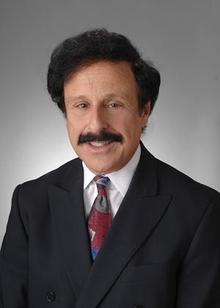
Dr Barry Jay Epstein, Accounting Expert at Epstein + Nach LLC
The audit committee, and its membership, are keys to the success of business operations. If the audit committee fails in executing its duties, there could be grave consequences for the entity, particularly in the areas of financial reporting and controls over the integrity of the financial reporting process. Without proper governance, monitoring and risk assessment system in place, the entity’s financial statements may include errors and misrepresentations, which could lead to reduced investor confidence, higher cost of capital, litigation and reputational damage.
It is therefore deemed to be prudent that audit committees conduct self-evaluations, periodically, to assess the extent to which they are meeting their responsibilities. The following nine areas should be addressed as part of that process, to improve the audit committee’s performance and to the likelihood of contributing to the fulfillment of the entity’s strategic objectives.
Audit Committee Composition
The audit committee should regularly review its composition to ensure that stagnation does not occur and that the right people are serving as active members. U.S. companies subject to Sarbanes-Oxley requirements (and others subject to similar rules or wishing to emulate such “best practices”), of course, must have “financially literate” members, of whom at least one must be a financial reporting expert, but even entities not affected by this rule would be well advised to obtain highly qualified individuals to serve on this key committee (and the full board, as well). Financial reporting, and its related control considerations, plays such an important role in the life of the enterprise – even absent outside shareholders – that it is well worth the investment of significant effort (and cost to compensate) to find and recruit the appropriately qualified individuals.
The audit committee can consider rotating members, especially if one or more persons not on the current board show a desire to contribute to the organization. New members can bring a fresh perspective to evaluating business operations, assessing risk, and recommending new internal control measures. As a key committee, it should include some continuing members as well as recent additions: it is wise to always retain a few experienced members to provide needed stability and serve as the “institutional memory” of actions taken in earlier periods – both those that were successful and those that misfired, for whatever reasons. Even with the best of intentions, looking at the same criteria and making repetitive decisions year after year can become mundane to even the most professional governance advisors. Overall, the audit committee should strive to function with members that possess the correct mix of fresh perspectives, knowledge and experience.
AC Competency
Finding and engaging appropriately qualified audit committee members is vital, but after being appointed the members must be given the resources to perform continually at a high level. The rules and concepts pertinent to quality financial reporting are constantly evolving. For example, on the near-term horizon in the U.S. and certain other key nations (India, Canada, etc.) is the impending move to replace U.S. or other national GAAP with International Financial Reporting Standards (IFRS), about which most U.S.-based audit committee members (and even accounting and auditing experts) currently have little or no understanding. Other changes, such as SEC reporting requirements in the U.S., will also continue apace, and parallel conditions in other developed nations are also to be expected.
To address these inevitable changes in the financial reporting environment, the audit committee should be scheduling regular ‘lunch and learn’ continuing professional education events and presentations, tailored to meet its member’s needs and interests. It is also critical that the audit committee members be made aware of changes in their company’s business environment, which could affect the company and its financial reporting needs and strategies.
The audit committee may choose to decide, depending on the content of a given program, that member attendance ought to be either optional or compulsory (the authors favor the latter). An emphasis should be placed on active participation, even for optional sessions, as continuing education programs featuring active learning can facilitate audit committee member’s ability to appropriately discharge their fiduciary and oversight responsibilities. Modern teaching techniques, such as role-playing, can prove remarkably effective, even with seasoned membership that might otherwise be jaded and reluctant to be subjected to the typical lecture that encourages only passive (and often ineffective) listening.
Time Commitment
Audit committee members should assess honestly whether they have adequate flexibility in their respective schedules to assume the duties and responsibilities that serving on the audit committee will inevitably entail. When any member finds him or herself overwhelmed and incapable of handling the added workload, the member should bring the issue to the attention of the full board or chairman, and if necessary resign. audit committee members should be made to realize that there is no dishonor in resigning for such reasons – but that continuing to nominally serve while failing to be productive would be a disservice to the company and the other committee members.
There are many benefits to be gained by accepting a seat on the audit committee. Such an appointment can enhance a member’s reputation and place him or her in a position for career advancement. Audit committees can obviously achieve their goals best when their members have sufficient time to expend discussing and addressing key issues. Potential members should be candidly informed, before being appointed, of the extent of the needed commitment, so that it is clear that service is more than a resume-burnishing opportunity for them.
Optimizing the Frequency and Structure of Audit Committee Meetings
Audit committees should periodically evaluate the productivity of their regular meetings, with an eye on possible changes to structure and/or frequency. Meetings that are too informal could result in situations where there are invigorating discussions but inadequate follow through on ideas and concerns that are raised. Meetings that are too formal, on the other hand, may inhibit active involvement by participants, who will be reluctant to speak up, and thus reduce the meetings to mere check-box sessions.
Depending on agenda items, the audit committee may find that the use of PowerPoint™ presentations, videos, and other technology will enhance the communication of opinions and comprehension of complex data. On the other hand, slickly packaged presentations, which have become the norm for many training sessions and even routine staff meetings, can easily devolve into entertaining but non-substantive programs that encourage passivity by the participants, with no follow-through on ideas presented.
Audit committee meetings are typically scheduled on the same days as full board meetings, and may occur four to eight times per year. The assessment should consider whether the current schedule is adequate to perform the necessary duties; if not, increases or decreases in frequency may be warranted. This can be adjusted annually as the agenda becomes more sparse or crowded.
Ultimately, in order to be effective, audit committees need to conduct meetings that are effectively structured to balance the need to summarize the status and review the progress of outstanding issues, discuss current agenda items, and assign responsibility for new tasks.
Adequacy of Resources
Even when composed of highly qualified individuals, it is not realistic to think that audit committees can be fully self-sufficient, particularly regarding insights into practices at other audit committees and concerning impending changes to financial reporting rules and securities laws. In the U.S., for example, Sarbanes-Oxley empowered audit committees to engage their own legal and accounting advisors, which few have done to date – the typical pattern, born of inertia, is to not make such changes in behavior until one or more other audit committees have suffered harm (e.g., in litigation) from not heeding such suggestions, and this has not yet occurred, to the authors’ best information and belief.
The authors do suggest, however, that the audit committee should consult with an independent accounting advisor, at least on an intermittent basis, if regular retention is not deemed necessary. The nature of the business, the dynamics of the industry, and the size of the company are all factors that influence the perceived value of having such a resource available to the audit committee.
Having board members and audit committee members who are highly qualified will typically carry a cost, particularly if independent (non-management) members are recruited (required for publicly-held companies, but recommended for others as well). The usual cost/benefit considerations apply, and the supply of highly qualified individuals is finite. Engaging an independent accounting advisor, albeit an added cost, may serve to encourage committee membership by other qualified individuals, who will perceive lower legal exposure as a consequence, and may also have a positive attitude born of the opportunity to network with, and learn from, an expert advisor. Thus, the added cost may pay sizable dividends to the company, overall.
Independent accounting advisor consultations are recommended because of their significant value in terms of both appearance and substance. Audit committees are logically entitled to seek the outside help from such experts to help them discharge their fiduciary duties (and formally empowered to do so by Sarbanes-Oxley). An independent advisor may be thus be retained to provide assistance, for example, with improving the audit committee members’ financial literacy, preparing reports, offering insights regarding aggressive or conservative financial reporting approaches, and communicating with the entity’s independent auditors.
Decision Processes and Operating Philosophy
The audit committee should share a risk tolerance philosophy similar to that of the board of directors and other functional entity management. An imbalance in ideology could jeopardize internal operations and could ultimately have external financial reporting implications. Some individuals may inappropriately believe that certain interpretations of regulations or specific aggressive actions, for example, are acceptable. The audit committee can mitigate misunderstanding and confusion regarding how risk should be evaluated and handled by creating a dynamic model to facilitate its member’s decisions. This model can, and should, be shared with other entity decision makers to promote uniform application of risk policies.
This is not to imply that unanimity of opinion is expected or even particularly desirable. A healthy level of debate serves to surface ideas and concerns, and with an appropriate structure for discussion (with the necessary “tone at the top” provided by the board and committee chairs), optimal decisions are more likely to result. However, an overall philosophy regarding the role and responsibility of the audit committee, the entity’s approach to financial reporting, and so forth, should best be shared by most or all of the audit committee members. This will change over time as membership changes and as environmental conditions evolve, of course.
Information Provided to Support audit committee Decision-Making
Audit committee members should be making informed decisions based on relevant and reliable information. It is therefore wise for audit committees to evaluate the processes for requesting and receiving information. It is essential for members to be able to obtain the materials they need in a timely manner. When the audit committee requests information such as documents, data, models, etc., the members should receive this information well in advance of meetings to provide members time to give it thoughtful consideration. They should also receive materials that are sufficiently detailed and satisfactorily respond to audit committee member inquiries.
It is well known that some managements deliberately provide audit committees (and full boards) with information only within days of scheduled meetings, often done to limit preparation and thus informed challenges to management members of the board. Such situations should never be tolerated; they risk sub-optimal decision-making, nonfeasance of fiduciary obligations by the board members, litigation and other costly and reputation-damaging consequences.
Committee Structure and Duties
The audit committee should have a clearly defined role within the organization. It is useful for these to be revisited periodically, since the expectations when it was created may well have become obsolete. The audit committee should either recommit to those goals or seek to modify its current structure and obligations, as circumstances warrant. It is critical that the audit committee operate within a framework that enables it to carry out its governance responsibilities with efficiency and effectiveness, in a manner responsive to changing environmental circumstances. It should be capable of influencing changes in business operations so that, among other things, entity risk management is integrated throughout the enterprise. There is a greater opportunity for successful adoption and acceptance of operating changes when management understands the audit committee’s responsibilities and authority and is confident that they have been updated to reflect current conditions.
Communication
Effective communications by the audit committee to and from the board of directors, internal audit function, management, and external auditors are all of critical importance to the effective functioning of the organization. In order to support the free flow of information and continuous dialog among these groups, the audit committee should establish a schedule for when it expects to receive and communicate information. For example, the audit committee could require the internal audit function on a monthly or quarterly basis to report on the findings of internal audit engagements it has performed. The audit committee can, in turn, utilize that information to discuss with the external auditors why they are or are not intending on performing certain procedures during the planned quarterly and year-end audit. In similar fashion, the audit committee can establish communications schedules with its other counterparts. Realistically, risk mitigation and improved operating practices can be achieved best when these groups frequently communicate with one another.
In the authors’ opinion, if attention is paid to these nine key aspects of audit committee conduct, it can optimize its performance and contribute mightily to the successful operation of the business enterprise it serves. Regular reviews are needed to cope with dynamic business environments, to bring fresh ideas to the fore, and to stimulate active participation by audit committee members. Whether the entity is publicly held or private, a vibrant audit committee can be a key determinant of organizational accomplishment.
Related Posts
Singapore – Happy 60th Birthday!
Proud to be part of Singapore’s journey of excellence. Paul Wan & Co wishes everyone…
🎅🎄 Merry Christmas! 🎄🎅
Wishing you all the joy, peace, and love this festive season brings. ✨ #Christmas #paulwanco…
✨ Happy Deepavali! ✨
Wishing you and your loved ones a joyous and prosperous festival of lights! May this…
Paul Wan & Co Group Bonding Event Da Nang 2024
Paul Wan & Co group celebrated our 38th anniversary with a big bang retreat in…











